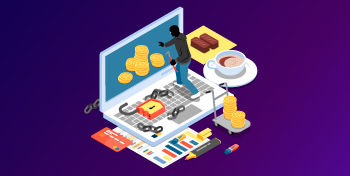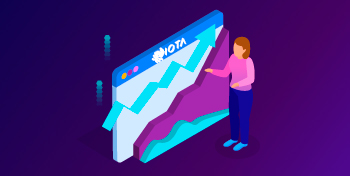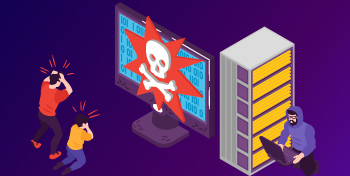While digitalism is unstoppable, it can be steered in the right direction, which might be called “modern digitalism”. Combining the benefits of digital tools with strict privacy and security rules will lead to a society that uses but does not abuse tools.
Everything will depend on the correctness of the choice
Because the future of labor will be digitized, thanks to a pandemic, 2021 will be the year when attention will need to be paid to how digitalisation will affect our business and privacy.
4. Decentralized financing (DeFi) will develop rapidly, including virtual currencies
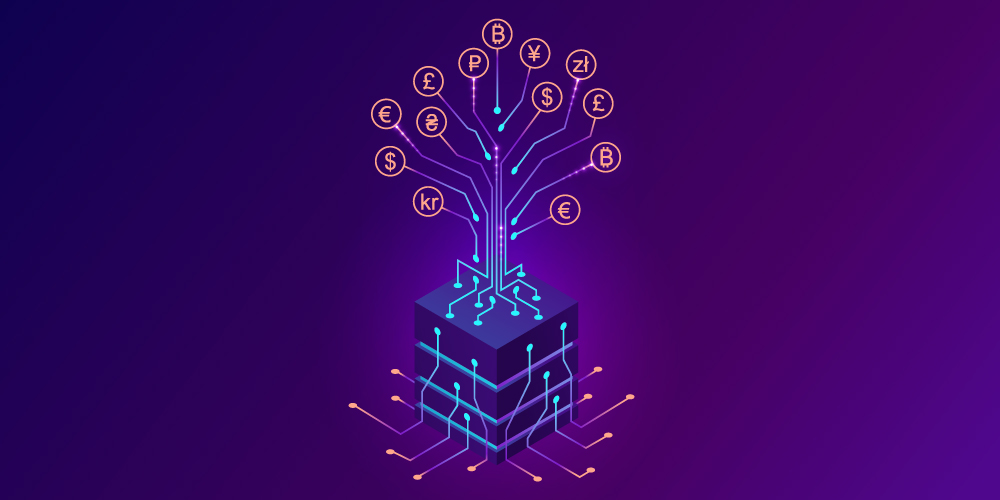
Over the past year, the number of applications of decentralized funding has soared. DeFi is a new form of financing that does not rely on centralized financial intermediaries, including banks, exchanges or brokerages. Instead, smart contracts written in the blockchain provide trust between the interacting parties. DeFi applications transform old financial products and processes into reliable and transparent protocols. In early 2020, a $1 billion cryptocurrency security was blocked in the DeFi economy, which had already grown to nearly $15 billion by the end of 2020.
Decentralized finance runs on immutable computer code stored in a chain. With smart contracts, DeFi applications work faster, more efficiently and more affordable than traditional financial products. It also allows developers to come up with entirely new financial products, ranging from term loans (loans that are issued and returned as part of a single transaction), to decentralized DeFi exchanges or derivatives. DeFi has the power to fundamentally change the global economy, and this year we can expect explosive growth in the DeFi economy.
As well as new DeFi applications, there will also be an increase in the number of governments seeking to explore digital currencies in 2021. The European Central Bank is exploring the possibilities of a digital euro, while the US Central Bank aims to develop a virtual dollar that can compete with Bitcoins. However, none of the central banks are as far away as the Central Bank of China.
Back in April 2020, they began testing the digital renminbi, inviting four major state-owned banks, three leading telecommunications companies and Huawei to participate. Huawei went so far as to become a partner with the People’s Bank of China, and struck a cloud deal with the Digital Currency Research Institute, a significant step in the development of their virtual money.
Despite concerns about the widespread proliferation of DCEP in emerging markets and international trade, China is well under way in an attempt to take power away from the dollar and Libra (now called Diem) as they internationalize the yuan, reducing dependence on the dollar.
China’s central bank, through a national lottery, issued ten million yuan, roughly one whole five-tenths of a million dollars, to about 50,000 people in the Shenzhen area. Happy users can spend their new kind money in more than 3,000 stores.
A couple of features of DCEP that differentiates it from existing cryptocurrencies is the ability to exchange offline, and does not require third party participation. DCEP allows users to exchange cash as much as they like, using their NFC phones, a near-field communication to transfer cash quickly and easily. The currency will also be centralized, giving the ability to create and destroy money directly to the People’s Bank of China, as well as allowing them to control inflation, ensuring that DCEP always will one to one with yuan.
China’s new currency, DCEP or electronic payments, is gaining momentum and, unless the US or Europe accelerates its efforts to introduce a digital dollar or euro in the current year, it will have a big impact on the dollar . The impact of the digital currency on the economy will be significant, allowing organizations to trade more efficiently and efficiently.
5. Confidential computing will protect our data
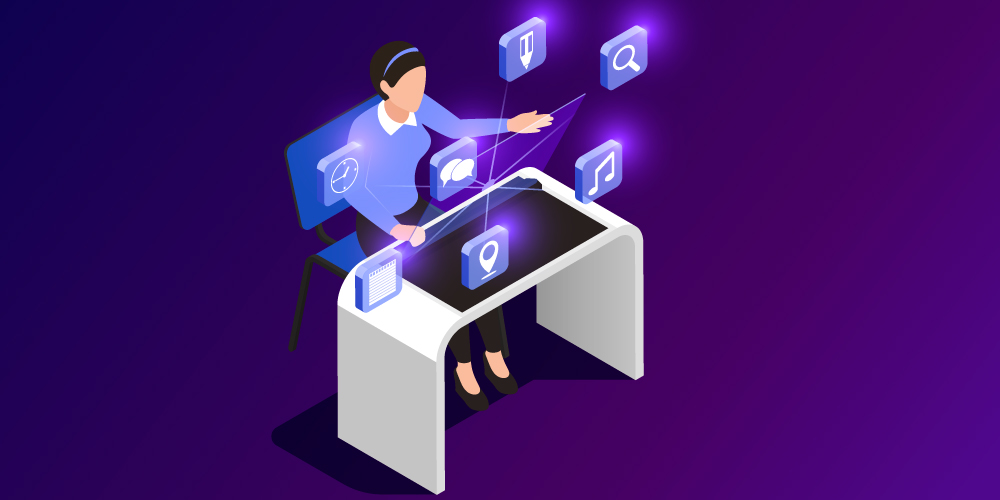
The amount of data collected and managed in the cloud has been growing rapidly recently. As more and more companies move into the cloud, the need for cloud security and smart resources also increases. If even one of America’s largest cybersecurity companies can be hacked, it’s clear that organizations should take data protection very seriously in 2021.
One approach that has emerged is confidential computing. Developing a more secure cloud environment is a challenge, and IBM started working on this already a decade ago. Their first version of confidential computing appeared in 2018, and today it is ready for mass implementation. Confidential computing combines analytics and security, and it is a standard that protects data at a deep technical level.
Instead of the operational guarantees currently offered by cloud service providers (policies and agreements), confidential computing offers a technical guarantee. The data is encrypted and can only be unlocked with the correct keys controlled by the data owner. Encrypting data at rest (storage) is very common, but encrypting data when transmitting is another matter altogether. According to the Linux Foundation, “confidential computing will allow the processing of encrypted data in memory without exposing it to the rest of the system, and will reduce vulnerability to sensitive data and provide greater control and transparency for users.” This means that no one, not even cloud providers, can access data stored on their servers or passing through the app.
This year, the financial industry was the first to widely introduce confidential computing. Bank of America and BNP Paribas have already switched to a safer cloud, and there will be even more of them soon. However, this does not mean that confidential computing overnight will become the new standard. According to Gartner, it will take another five to ten years before confidential computing becomes the new global standard. However, it is to be expected to happen faster because of the more data leaks that are inevitable in the coming years.
IBM is not the only company involved in confidential computing. In 2019, the Linux Foundation Confidential Computing Consortium was founded by companies such as Alibaba, Intel, Microsoft, Baidu, Google, Red Hat and, of course, IBM.
As I state almost every year, organizations need to keep their data safe. The list of data leaks is endless and will continue to grow. Companies are expected to lose up to five trillion dollars due to cybercrime by 2024, causing major turmoil in the global economy.
2021: the year of digitalism
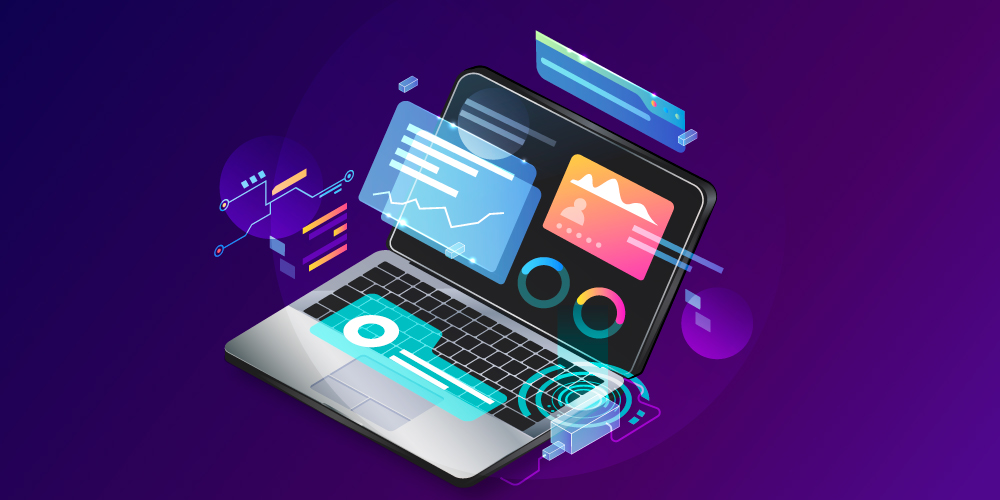
Digitalism should be perceived as the next leading global system of social organization. Digitalism will become more common in 2021, especially due to advances in technologies such as machine learning, quantum computing or blockchain.
After all, neural networks that compute at the speed of light can be used to solve the biggest problems in the world, and be used to further enhance government or corporate surveillance already existing in many countries. Recently, The Washington Post has already reported that China is testing advanced AI to automatically recognize Uighur minorities and alert police. With the advent of more advanced machine learning on our path, most likely at the expense of quantum computers, China is rapidly becoming a country organized according to the state by digitalism.
At the same time, the desire for remote work due to the pandemic and the growth of digital employees has increased surveillance of jobs. Also, with each of our click, consumer privacy is quickly a thing of the past. As a consequence, neo-digitalism will flourish in those countries that cannot control their (technological) conglomerates. Therefore, antitrust laws in place around the world will become more important than ever. But they will only be useful if we act.
Fortunately (I want to believe), developments in the field of confidential computing and decentralized finance will protect the consumer. Also, the more AI becomes commonplace in society, the more citizens will need an ethical approach to AI. In 2020, we saw Amsterdam and Helsinki launch algorithm registries to ensure transparency in public AI deployment, and we will see this more often in 2021. These developments will enable countries to organize their societies according to modern digitalism, where we use technology and data to improve society and citizens, not against them.
This battle between state, neo and modern digitalism, caused by these five technological trends, as well as global crises such as Covid-19, is expected to intensify in 2021 . Therefore, it is worth calling 2021 – the year of digitalization. Citizens and countries will have a choice of crucial importance. The right thing will need to be done or they will become part of a totalitarian, constantly digitally controlled world.
